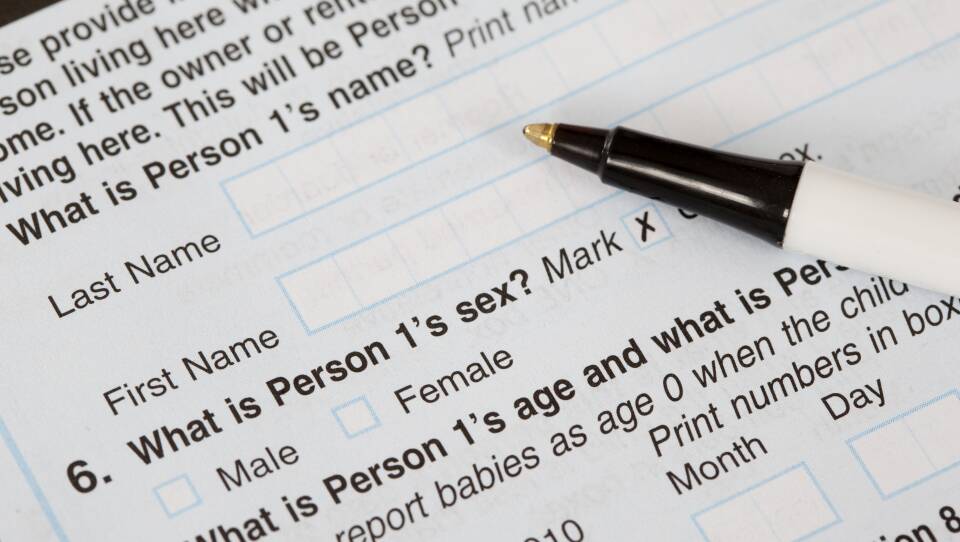The once a decade U.S. Census is being conducted this year. It's an enormous task and an important one. Tim Olson is the associate director for field operations at the U.S. Census Bureau. He's the man at the top when it comes to the taking of the census across the whole country. Olson spoke with WGBH News' Craig LeMoult about how preparations for the census are going here in Massachusetts. This transcript has been edited for clarity.
Craig LeMoult: Remind us why this census is so important.
Tim Olson: The census is in the U.S. Constitution, and it requires that a count of the whole population be conducted every 10 years. And then, it says, so that we can apportion the seats in the U.S. House of Representatives equitably between all of the states in the union.
LeMoult: It's worth mentioning that in the last census a decade ago, we actually lost a House seat here in Massachusetts.
Olson: That's what happens every decade. Some states will gain members in the House, other states, like Massachusetts, will lose one. And it's because the proportion of the state's population to the national population, you know, — it ebbs and flows. Something that most people don't realize is not only is the Congress apportioned based on the state's population, but that also affects the electoral college. The other thing that I think people are becoming aware of is census numbers determine how billions and billions of dollars every single year are allocated back to local communities. Being included in the census means you'll get your fair share of representation, but you'll also be sure that your community receives their fair portion of the funding for stuff that everybody relies upon.
LeMoult: And this is getting going right now. I think people are supposed to receive their surveys in the mail in just about three weeks.
Olson: Yes. Beginning March 12, we will start mailing — in some areas hand-delivering — invitations to participate in the census. So they can go online. They can call a toll free number. They can also do it the old traditional way and fill out a paper questionnaire that we will deliver to their home. We've also made the form available online and over the phone in 13 languages.
LeMoult: The federal Government Accountability Office released a report last week raising several concerns about whether the Census Bureau is really ready for this huge task you're about to take on. First of all, the report says the Bureau's behind in recruiting census workers. Do you have enough staff here in Massachusetts to conduct this count?
Olson: In New England, particularly Vermont, New Hampshire, Maine, and to some degree Massachusetts and Rhode Island, we're behind. So nationally, we're at 92 percent of our goal, and here in New England we're at 63 percent of our goal. Here in the in the Boston area, in Boston proper, I believe our pay rate is $27.50 an hour. So, we still need several thousand people here in the New England area to apply for these jobs.
LeMoult: Have you been able to find people, local people, who can work in communities that they're already familiar with?
Olson: That's absolutely our goal and we do have applicants in every single community, every single neighborhood. We're simply seeking more applicants to make sure we've got enough available people. There's many neighborhoods where we need people that are fluent in English plus the local language that is commonly spoken. In some neighborhoods, it's multiple languages.
LeMoult: So, the Trump Administration had tried to get a question about citizenship on this year's census. That raised some concerns about undocumented populations being scared to be counted. The question was shot down by the [U.S.] Supreme Court after the attorney general here in Massachusetts and 17 other attorneys general challenged it. But is the damage already done? Are people in undocumented communities thinking, 'I don't want to be part of this'? And do they have any reason for concern?
Olson: Individual responses to the census are absolutely confidential. By law, the Census Bureau cannot share individual response data with any law enforcement, any immigration authority, any local code enforcement authority. If I were to violate somebody's confidentiality, I could face up to five years in prison.
LeMoult: I know you said by law that the Census Bureau can't share that confidential information, but has anybody from the Trump Administration, from Homeland Security, from ICE, requested access to that kind of information?
Olson: To my knowledge, no. If they were, the answer would be no. Absolutely no.





